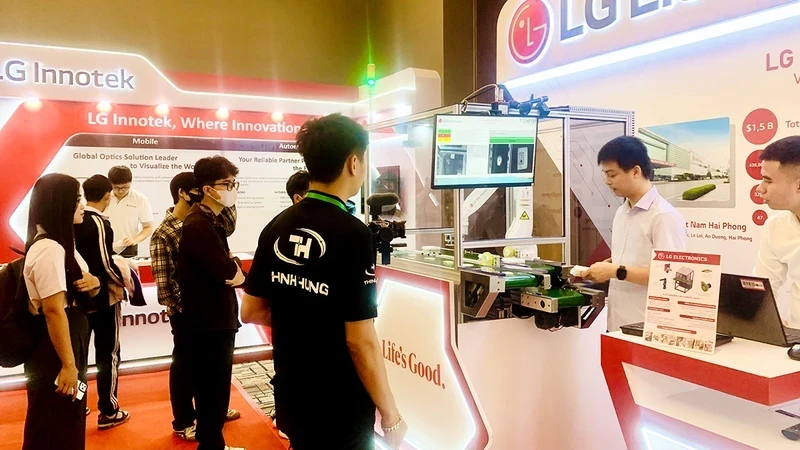
Resolution 68-NQ/TW The Politburo 's Decree on Private Economic Development issued on May 4, 2025 sets out the task of strengthening connections between private enterprises, private enterprises with state-owned enterprises and FDI enterprises. The State supports consulting and trade promotion services to connect FDI enterprises with domestic enterprises. Apply appropriate localization rates according to the roadmap; large FDI projects must have plans to use domestic supply chains right from the project approval stage...
The trend in many countries today is that domestic enterprises need to participate in the supply and service chains of FDI enterprises. In Vietnam, this process has many "barriers" that need to be removed...
“Bottleneck” linking FDI sector and domestic enterprises
According to the Foreign Investment Agency, Ministry of Finance , in 2024, Vietnam attracted more than 38 billion USD of FDI capital, of which realized capital reached over 25 billion USD. Many experts assessed this as a quite impressive number compared to previous years.
By the end of the first quarter of 2025, Vietnam has more than 42,700 valid FDI projects, with a total registered capital of over 510 billion USD. The accumulated realized capital is nearly 327.5 billion USD, equal to nearly 64.2% of the total registered investment capital in effect. With this figure, Vietnam is among the 15 countries attracting FDI largest in the world.
Nichias Hai Phong Co., Ltd. is one of the Japanese FDI enterprises, invested in Vietnam since 2001, specializing in manufacturing air filtration products; plastic products and accessories (PTFE, ETFE); gaskets made from non-metallic minerals.
Mr. Kengo Iwahara, General Director of the company shared: “Currently, we have localized many production stages, the main raw materials that had to be imported have been replaced by materials from Vietnamese enterprises. This helps us reduce costs, reduce inventory, save on transportation costs, reduce CO2 emissions and shorten delivery times. This connection is a clear and effective demonstration of cooperation between FDI enterprises and domestic enterprises. Currently, we have localized 36% (the ratio between the value of domestic materials and the total value of products)”.
“We always welcome cooperation with Vietnamese enterprises. However, to become partners in our supply chain, Vietnamese enterprises need to meet the conditions of providing high-quality and stable products. Strictly comply with technical and safety requirements. Most competitive prices. Ability to deliver on time. Clear and transparent management system. Once meeting these standards, Vietnamese enterprises will have great opportunities to participate deeply in our value chain,” Mr. Kengo Iwahara emphasized.
Mr. Pham Xuan Hoe, former Deputy Director of the Banking Strategy Institute, said: When investing in Vietnam, most corporations and FDI enterprises proactively build supply chains in advance. Vietnamese enterprises that want to participate in that value chain must first meet mandatory requirements on technological capacity, machinery, production lines, management level, and current trending standards such as ESG (including environmental, social and sustainable governance). To achieve these requirements, a huge financial investment is needed, while finance is a "barrier" for domestic enterprises.
Mr. Hoe also gave an example to prove this: “More than 10 years ago, I surveyed businesses in Hanoi's supporting industrial parks, including Samsung Company, and found that in order to participate in Samsung's production chain, they had to have a standard machinery line, with an investment value of about 300 billion VND. Vietnamese businesses that wanted to have that line and borrow from the bank had to have 30% of their own capital - that is, they had to have 90 billion VND. At that time, which business could have enough 90 billion VND to match? Meanwhile, banks, because of high risks, limited accepting mortgages on assets from machinery and equipment. Currently, the cost for the production line may be a bit lower, but the amount is certainly not small - it must be hundreds of billions of VND, and accessing medium and long-term capital for hundreds of billions is difficult, where can small and medium-sized enterprises get such a large amount of money?”
“We need to review to have appropriate policies. Enterprises themselves should not be afraid to change their own internal weaknesses. This is first of all beneficial for the development of the enterprise itself, not just to serve the purpose of participating in the value chain of FDI enterprises. The bigger and further goal is for enterprises to participate in the global value chain,” Mr. Hoe emphasized.
Establishment of a national guarantee fund for small and medium enterprises
Mr. Lim Dyi Chang, Director of Corporate Banking, UOB Vietnam Bank, recommends that Vietnam needs to transform itself from a position of simply/passively receiving foreign investment capital to a position of strategic partner, while simultaneously creating value together with FDI enterprises. Instead of only competing with preferential policies and cheap human resources, Vietnam needs to focus on investing in development platforms such as logistics infrastructure, energy, etc. The legal environment must be stable and transparent, creating peace of mind for investors.
The Government is making great efforts to accelerate and achieve two important goals: by 2030, to become a developing country with modern industry and high average income. By 2045, to become a developed country with high income. To achieve this goal, it is necessary to have a significant contribution from FDI capital flows as well as the participation of domestic enterprises in the supply chain of foreign enterprises in particular and the global value chain in general.
Mr. Pham Xuan Hoe, former Deputy Director of the Banking Strategy Institute, said: “It is necessary to increase access to medium and long-term capital for domestic enterprises, through completing and consolidating the establishment of the National Small and Medium Enterprise Guarantee Fund. This fund operates based on the following principles: credit guarantee (ie guarantee without collateral); unconditional and irrevocable guarantee (only then will commercial banks accept lending capital). There is acceptance of risk and provision for risk. Along with that, there must be credit insurance (ie a portion of the fee will be deducted to insure the borrower's loan) in case of unfortunate business losses, there will be that insurance to cover the debt”.
Regarding the fund's operating capital, Mr. Hoe proposed that it could be gathered from the local guarantee funds currently holding more than 1,500 billion VND and deduct 20 trillion VND from the 40 trillion VND of interest rate support during the Covid-19 period, which the Resolution of the National Assembly and the Government decided to allocate 40 trillion VND to support but still could not be significantly implemented. The second source of capital for this fund is that every year the central budget, localities, and commercial banks must deduct a portion of their finances to contribute to the fund to increase its value.
“Only when small and medium-sized enterprises receive financial support from the State according to the principle of 'controlled risk acceptance' can they link the value chain with the FDI sector,” Mr. Hoe emphasized.
In the current volatile and challenging context, this is a time that requires closer cooperation than ever between the Party, the State and the business community, including foreign-invested enterprises, to create new values. We cannot go far if we go alone and can only make a breakthrough when we work together. The cooperation between Vietnam and the FDI business community, when built on a foundation of strategic trust and long-term vision, will be the key to overcoming challenges together and creating sustainable values and prosperity.
Source: https://baoquangninh.vn/gan-ket-khu-vuc-fdi-va-kinh-te-trong-nuoc-3359841.html


![[Photo] Discover unique experiences at the first World Cultural Festival](https://vphoto.vietnam.vn/thumb/1200x675/vietnam/resource/IMAGE/2025/10/11/1760198064937_le-hoi-van-hoa-4199-3623-jpg.webp)





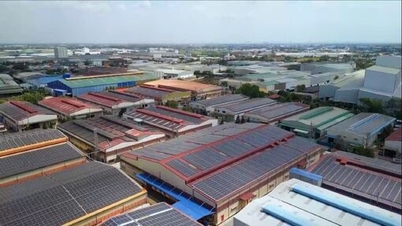







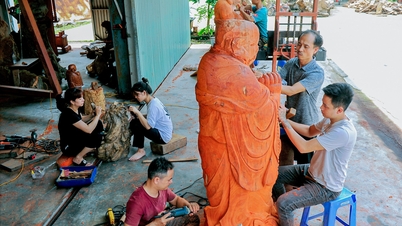

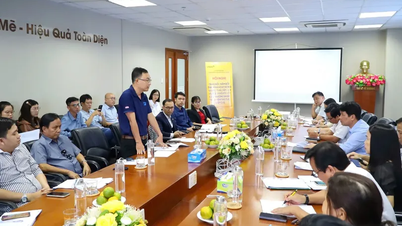





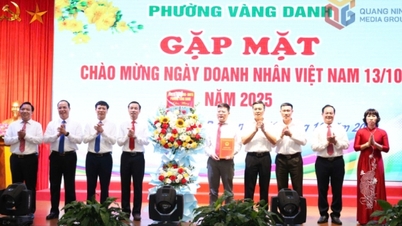
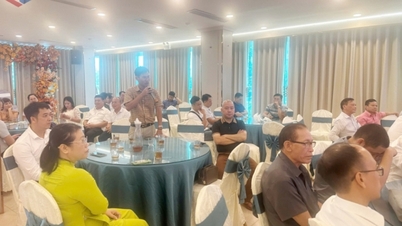


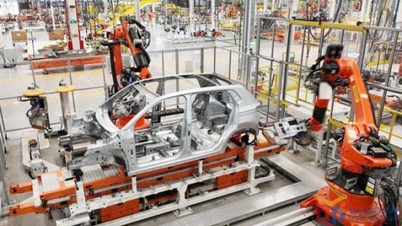
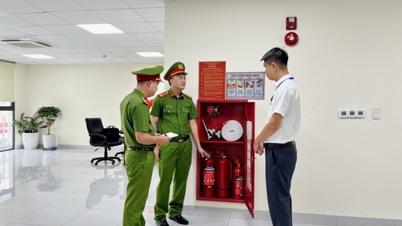

![[Photo] General Secretary attends the parade to celebrate the 80th anniversary of the founding of the Korean Workers' Party](https://vphoto.vietnam.vn/thumb/1200x675/vietnam/resource/IMAGE/2025/10/11/1760150039564_vna-potal-tong-bi-thu-du-le-duyet-binh-ky-niem-80-nam-thanh-lap-dang-lao-dong-trieu-tien-8331994-jpg.webp)


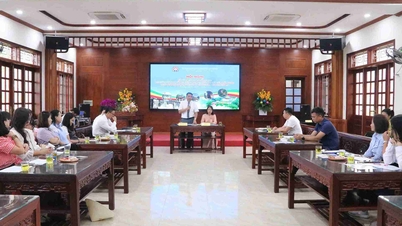



















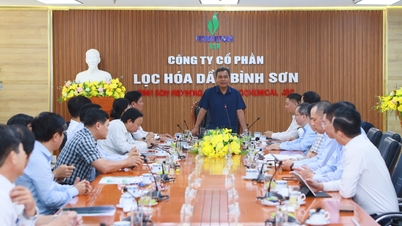









![[Photo] General Secretary attends the 80th Anniversary of the Traditional Day of the Armed Forces of Military Region 4](https://vphoto.vietnam.vn/thumb/402x226/vietnam/resource/IMAGE/2025/10/12/1760265970415_image.jpeg)


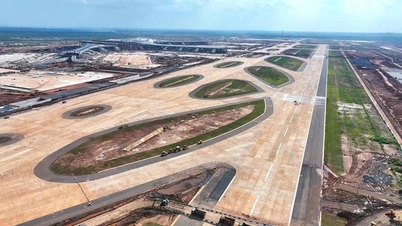
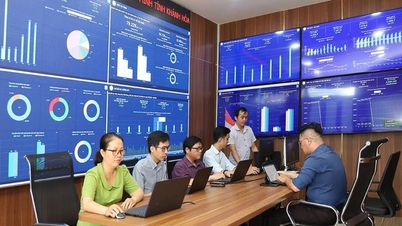

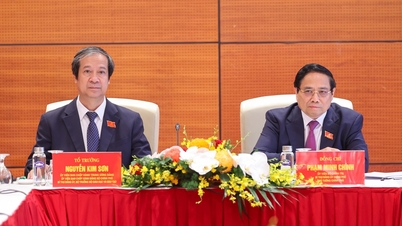


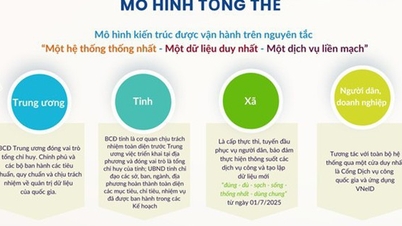
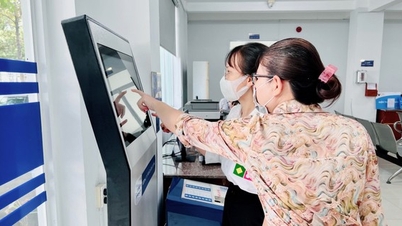
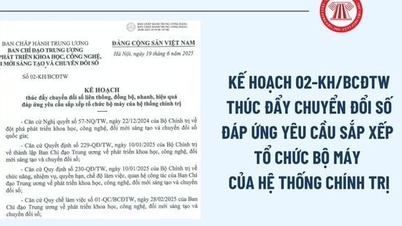

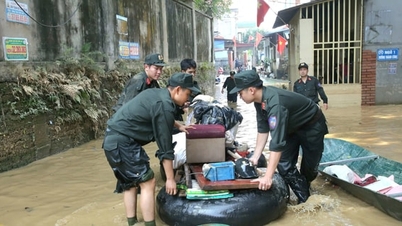

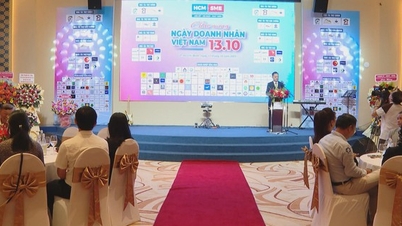



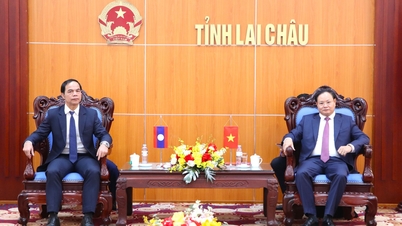















Comment (0)